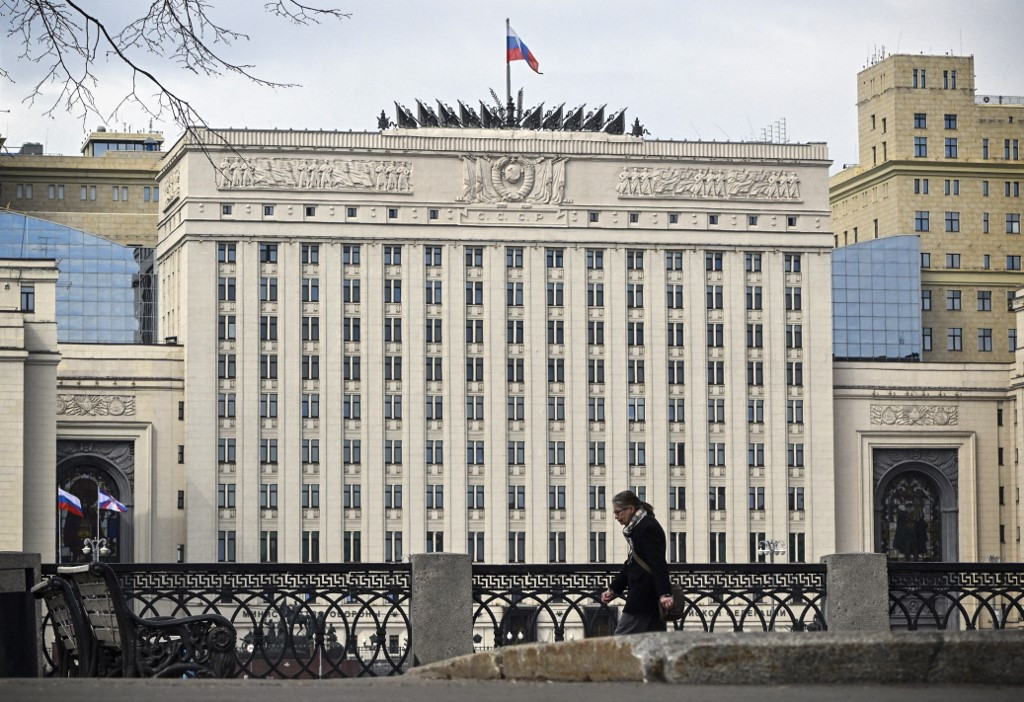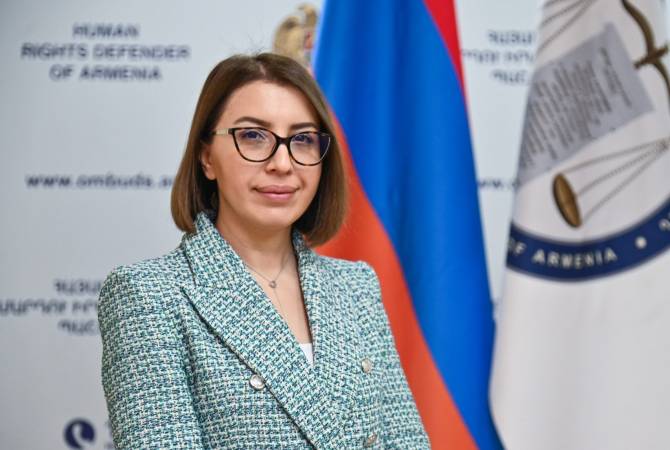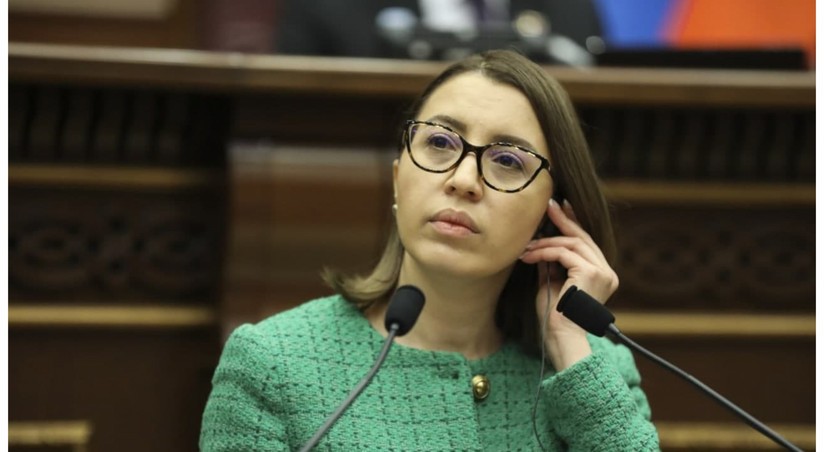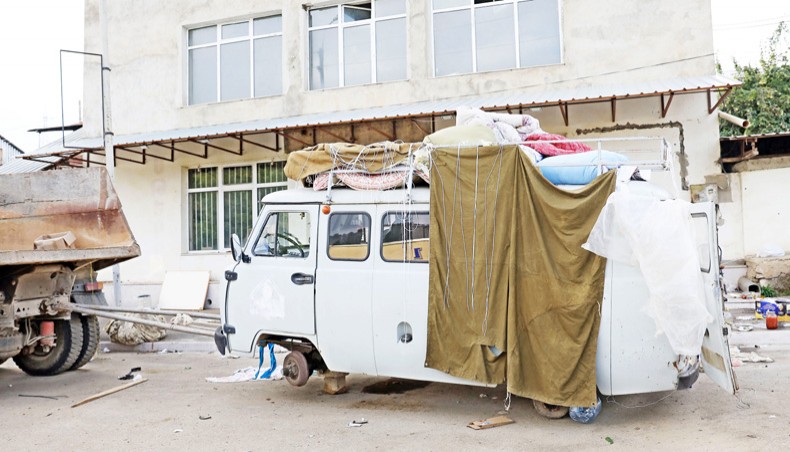Tens of thousands of now-homeless people have streamed into Armenia from the separatist region of Nagorno-Karabakh, controlled by its emboldened adversary, Azerbaijan.
Swarms of protesters are filling the streets of the Armenian capital of Yerevan, demanding the prime minister’s ouster. Relations with Russia, an old ally and protector, have frayed amid mutual accusations.
Armenia now finds itself facing multiple challenges after being suddenly thrust into one of the worst political crises in its decades of independence following the 1991 collapse of the Soviet Union.
Developments unfolded with surprising speed after Azerbaijan waged a lightning military campaign in Nagorno-Karabakh, a majority ethnic Armenian region that has run its affairs for three decades without international recognition.
Starved of supplies by an Azerbaijani blockade and outnumbered by a military bolstered by Turkey, the separatist forces capitulated in 24 hours and their political leaders said they would dissolve their government by the end of the year.
That triggered a massive exodus by the ethnic Armenians who feared living under Azerbaijani rule. Over 80% of the region’s 120,000 residents hastily packed their belongings and trudged in a grueling and slow journey over the single mountain road into impoverished Armenia, which is struggling to accommodate them.
Enraged and exasperated over the loss of their homeland, they will likely support almost daily protests against Prime Minister Nikol Pashinyan, who has been blamed by the opposition for failing to defend Nagorno-Karabakh.
“There’s a tremendous amount of anger and frustration directed at Nikol Pashinyan,” said Laurence Broers, an expert on the region at Chatham House.
Pashinyan’s economically challenged government has to provide them quickly with housing, medical care and jobs. While the global Armenian diaspora has pledged to help, it poses major financial and logistical problems for the landlocked country.
While many Armenians resent the country’s former top officials who lead the opposition and also hold them responsible for the current woes, observers point to a history of bloodshed. In 1999, gunmen barged into the Armenian parliament during a question-and-answer session, killing Prime Minister Vazgen Sargsyan, the parliament speaker and six other top officials and lawmakers.
“There is a a kind of tradition of political assassination in Armenian culture,” said Thomas de Waal, a senior fellow at the Carnegie Europe think tank.
He and other observers note that one factor in Pashinyan’s favor is that whatever simmering anger there is against him, there is just as much directed toward Russia, Armenia’s main ally.
After a six-week war in 2020 that saw Azerbaijan reclaim part of Nagorno-Karabakh and surrounding territories, Russia sent about 2,000 peacekeeping troops to the region under a Kremlin-brokered truce.
Pashinyan has accused the peacekeepers of failing to prevent the recent hostilities by Azerbaijan, which also could make new territorial threats against Armenia,
Russia has been distracted by its war in Ukraine, which has eroded its influence in the region and made the Kremlin reluctant to defy Azerbaijan and its main ally Turkey, a key economic partner for Moscow amid Western sanctions.
“Clearly, this Azerbaijani military operation would not have been possible if the Russian peacekeepers had tried to keep the peace, but they just basically stood down,” de Waal said.
The Kremlin, in turn, has sought to shift the blame to Pashinyan, accusing him of precipitating the fall of Nagorno-Karabakh by acknowledging Azerbaijan’s sovereignty over the region and damaging Armenia’s ties with Russia by embracing the West.
Russian President Vladimir Putin has long been suspicious of Pashinyan, a former journalist who came to power in 2018 after leading protests that ousted the previous government.
Even before Azerbaijan’s operation to reclaim control of Nagorno-Karabakh, Russia had vented anger at Armenia for hosting U.S. troops for joint military drills and moving to recognize the jurisdiction of the International Criminal Court after it had indicted Putin for war crimes connected to the deportation of children from Ukraine.
The bad feelings escalated after the fall of Nagorno-Karabakh, with Moscow assailing Pashinyan in harsh language that hadn’t been heard before.
The Russian Foreign Ministry blasted “the inconsistent stance of the Armenian leadership, which flip-flopped on policy and sought Western support over working closely with Russia and Azerbaijan.”
In what sounded like encouragement of demonstrations against Pashinyan, Russia declared that “the reckless approach by Nikol Pashinyan’s team understandably fueled discontent among parts of Armenian society, which showed itself in popular protests,” even as it denied that Moscow played any part in fueling the rallies.
“The Armenian leadership is making a huge mistake by deliberately attempting to sever Armenia’s multifaceted and centuries-old ties with Russia, making the country a hostage to Western geopolitical games,” it said.
It remains unclear whether Pashinyan might take Armenia out of Moscow-dominated Collective Security Treaty Organization, a group of several former Soviet nations, and other Russia-led alliances. Armenia also hosts a Russian military base and Russian border guards help patrol Armenia’s frontier with Turkey.
Despite the worsening rift, Pashinyan has refrained from threats to rupture links with Moscow, but he emphasized the need to bolster security and other ties with the West.
It could be challenging for the U.S. and its allies to replace Moscow as Armenia’s main sponsors. Russia is Armenia’s top trading partner and it is home to an estimated 1 million Armenians, who would strongly resist any attempt by Pashinyan to break ties with Moscow.
“Economically speaking, strategically speaking, Russia is still very deeply embedded in the Armenian economy in terms of energy supply and ownership over key strategic assets,” Broers said. “It’s going to need a lot of creativity from other partners for Armenia to broaden out its foreign policy.”
The future of the Russian peacekeepers in Nagorno-Karabakh, which were supposed to stay through 2025, is unclear. Kremlin spokesman Dmitry Peskov said their status needs to be negotiated with Azerbaijan.
Broers said Azerbaijan could allow a small number of Russian peacekeepers to stay in Nagorno-Karabakh to help promote its program to “integrate” the region.
“This would be face-saving for Moscow,” he said. “This would substantiate the integration agenda that is being promoted by Azerbaijan.”
Even though the peacekeepers didn’t try to prevent Azerbaijan from reclaiming Nagorno-Karabakh, the Russian troops’ presence in Armenia helps counter potential moves by Azerbaijan and Turkey to pressure Yerevan on some contested issues.
Baku has long demanded that Armenia offer a corridor to Azerbaijan’s exclave of Nakhchivan, which is separated from the rest of the country by a 40-kilometer (25-mile) swath of Armenian territory. The region, which also borders Turkey and Iran, has a population of about 460,000.
The deal that ended the 2020 war envisaged reopening rail and road links to Nakhchivan that have been cut since the start of the Nagorno-Karabakh conflict, but their restoration has stalled amid continuing tensions between Armenia and Azerbaijan.
Azerbaijan has warned it could use force to secure the corridor if Armenia keeps stonewalling the issue, and there have been fears in Armenia that the corridor could infringe on its sovereignty.
“I think there is extreme concern about this in Armenia, given the very dramatic military asymmetry between Armenia and Azerbaijan today and given the fact that Russia has ostensibly abdicated its role as a security guarantor for Armenia,” Broers said.
De Waal noted that Azerbaijan President Ilham Aliyev hosted Turkish President Recep Tayyip Erdogan in Nakchivan on Monday and talked about southern Armenia as a historic Azerbaijani land “in a rather provocative way.”
Despite Western calls for Azerbaijan to respect Armenia’s sovereignty as well as strong signals from Iran, which also has warned Azerbaijan not to use force against Armenia, tensions remain high, he noted.
“The issue is to what extent Azerbaijan and Turkey, backed maybe quietly by Russia, push this issue,” de Waal said. “Do they just sort of try and force Armenia at the negotiating table or do they actually start to use force to try and get what they want? This is the scenario everyone fears.”
___
Associated Press writer Emma Burrows in London contributed to this report.


 09:37, 4 October 2023
09:37, 4 October 2023

 image/jpeg
image/jpeg 



